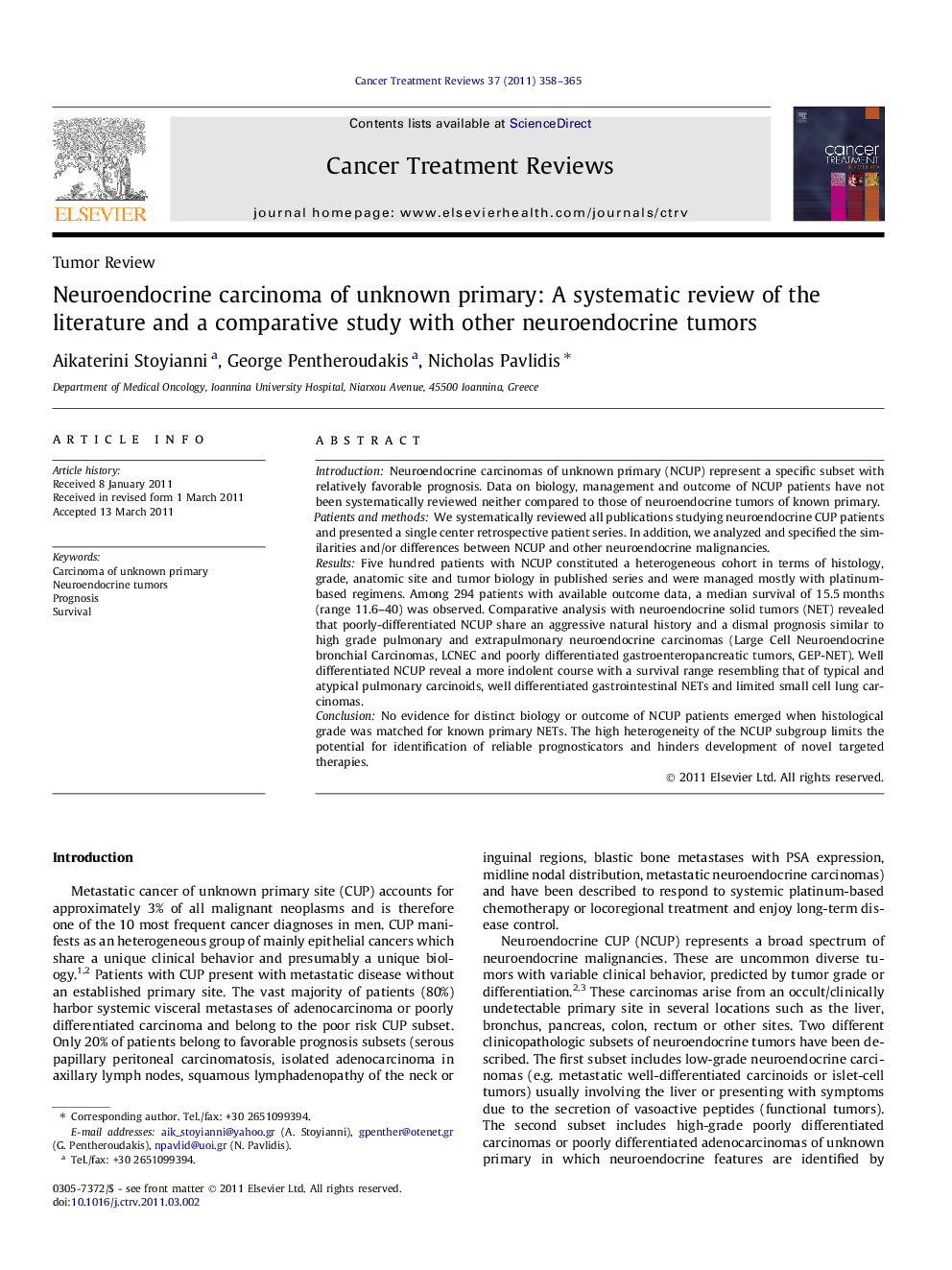| Article ID | Journal | Published Year | Pages | File Type |
|---|---|---|---|---|
| 3980458 | Cancer Treatment Reviews | 2011 | 8 Pages |
IntroductionNeuroendocrine carcinomas of unknown primary (NCUP) represent a specific subset with relatively favorable prognosis. Data on biology, management and outcome of NCUP patients have not been systematically reviewed neither compared to those of neuroendocrine tumors of known primary.Patients and methodsWe systematically reviewed all publications studying neuroendocrine CUP patients and presented a single center retrospective patient series. In addition, we analyzed and specified the similarities and/or differences between NCUP and other neuroendocrine malignancies.ResultsFive hundred patients with NCUP constituted a heterogeneous cohort in terms of histology, grade, anatomic site and tumor biology in published series and were managed mostly with platinum-based regimens. Among 294 patients with available outcome data, a median survival of 15.5 months (range 11.6–40) was observed. Comparative analysis with neuroendocrine solid tumors (NET) revealed that poorly-differentiated NCUP share an aggressive natural history and a dismal prognosis similar to high grade pulmonary and extrapulmonary neuroendocrine carcinomas (Large Cell Neuroendocrine bronchial Carcinomas, LCNEC and poorly differentiated gastroenteropancreatic tumors, GEP-NET). Well differentiated NCUP reveal a more indolent course with a survival range resembling that of typical and atypical pulmonary carcinoids, well differentiated gastrointestinal NETs and limited small cell lung carcinomas.ConclusionNo evidence for distinct biology or outcome of NCUP patients emerged when histological grade was matched for known primary NETs. The high heterogeneity of the NCUP subgroup limits the potential for identification of reliable prognosticators and hinders development of novel targeted therapies.
